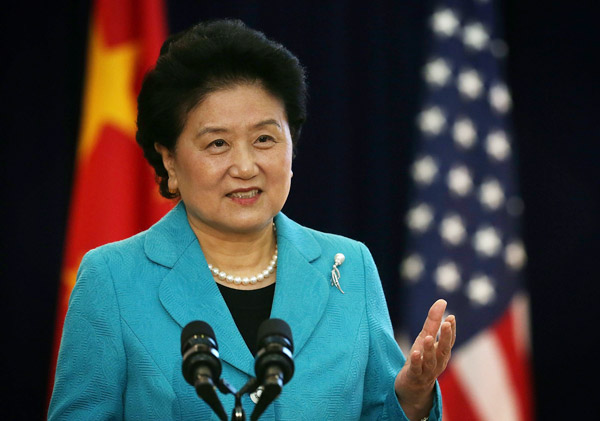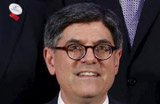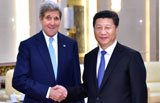China-US dialogue helps avoid policy mistakes, conflict, US expert says
Updated: 2016-06-12 10:59
(Xinhua)
Comments Print Mail Large Medium SmallWASHINGTON -- The annual high-level China-US dialogue held this week could help the two countries avoid policy mistakes on the macroeconomic side and prevent conflict over the South China Sea, a US expert has said.
"I would say the most important thing is they had a good discussion" about macroeconomic policy that could help avoid policy mistakes, David Dollar, a senior fellow with the Brookings Institution, told Xinhua in a recent interview.
Stanley Fischer, vice chairman of the US Federal Reserve, "was there talking about the likely path of interest rates" during the eighth China-US Strategic and Economic Dialogue (S&ED) held on Monday and Tuesday in Beijing, said Dollar, who was a former official of the World Bank and the US Treasury Department.
Fed's monetary policy will "have a big effect" on the Chinese and global economy, particularly for China's exchange rate policy, he added.
"I think it's good to have a frank discussion and that minimizes the potential" of making policy mistakes, which could be "the Fed raises interest rates too rapidly in light of what the US economy is doing" or "China mismanages its exchange rate," he said.
The Fed should communicate better with China and financial markets on its interest rate decisions, China's Vice Finance Minister Zhu Guangyao said last week, adding that the world's two largest economies should strengthen policy coordination and cooperation.
Fed officials will gather next week to decide whether the central bank will raise interest rates.
Fed Chair Janet Yellen said Monday that gradual interest rate hikes remain appropriate, but avoided providing precise timing for the central bank's next move. Economists now see September or possibly July as the most likely time for Fed's next rate hike.
While it's difficult to get specific outcomes from the China-US high-level dialogue in the final year of the Obama administration, the two sides have made "some specific progress" in financial cooperation as "China is moving ahead with financial liberalization," Dollar said.
China will grant the United States a quota of 250 billion yuan (38 billion US dollars) under the country's Renminbi Qualified Foreign Institutional Investor program, and appointed one Chinese and one US bank to conduct RMB clearing business in the United States, according to a joint statement released after the dialogue.
"It's kind of a small technical thing, but it's part of China's opening up ... and that helps with the internationalization of the RMB, keeps the US banks involved in this new development," Dollar said.







